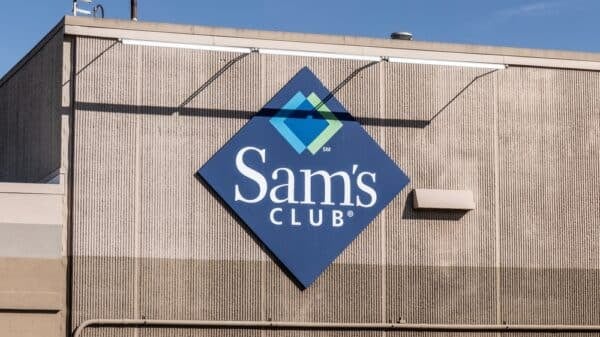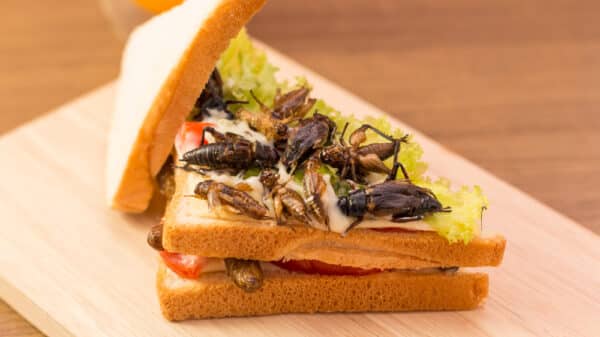Cake. Just saying the word can brighten up your day, conjuring up images of celebrations, laughter, and those sweet moments we all cherish. But even this beloved dessert isn’t immune to mishaps. Throughout history, there have been cake recalls that remind us of the importance of food safety and the sometimes surprising twists our favorite treats can take.
Premade cakes and mixes can hit the shelves with surprising flaws that lead to major recalls. To sell food in American stores, companies must adhere strictly to the standards set by the United States Department of Agriculture (USDA) and the U.S. Food and Drug Administration (FDA). One slip in the production process can snowball into a monumental recall, putting consumers at risk. Even though cake is all about happiness, these recalls show that safety must always come first.
Recalls can be incredibly stressful and costly, affecting companies of all sizes. In this article, we’ll delve into some notable cake recalls, exploring the mishaps that led to recalls and the sometimes bizarre reasons that prompted companies to yank their products off the shelves. Prepare yourself for tales that might just make you shake your head in disbelief.
Rise Baking Company cakes in 2021
Rise Baking Company’s Cookies and Cream Cake and Vanilla Bean Waterfall Cake have delightful names and even more delightful flavors—unless you’re allergic to hazelnuts. On March 31, 2021, Rise Baking Company had to recall these cakes due to an oversight: hazelnuts were included but weren’t listed on the packaging. These cakes, sold under the Harris Teeter and Dawn Foods Products brands, totaled an astonishing 80,088 pounds, all pulled back from consumers to ensure their safety.
These sugary treats were available across the nation, but thankfully, no allergic reactions were reported. The mistake happened during a transition of ownership at the facility where the cakes were produced, resulting in hazelnuts slipping under the radar. Rise Baking Company chose to halt production until they fully resolved the issue, demonstrating their commitment to consumer safety.
While disposing of that much cake must have been tough to swallow, the health risks posed to consumers were far more significant. Hazelnuts are classified among the nine major food allergens for which the FDA demands clear labeling. Other allergens include peanuts, wheat, soy, eggs, milk, fish, crustaceans, and now sesame. Food products must call out such allergens directly on the packaging, something that Rise Baking Company’s cakes failed to do. Their loss reinforces a critical lesson for food companies: in the race for production efficiency, cutting corners can have serious consequences.
Ne-Mo’s cakes in 2019
In 2019, Ne-Mo’s cake squares made headlines for an unexpected—and frankly, gross—reason. Customers enjoying their individually-wrapped cake squares were in for a shock when they discovered a bird foot inside. Yes, you read that right. On March 10, 2019, Ne-Mo’s had to recall their Chocolate Cake with Cream Cheese Icing, Red Velvet Cake with Cream Cheese Icing, and Birthday Cake with Buttercream Icing due to this peculiar contamination.
Such recalls involving foreign materials aren’t as rare as you’d think. Usually, we hear about plastic or metal finding its way into food, but Ne-Mo’s took it to a whole new level with animal parts. They ended up recalling 45,366 pounds of cakes that had made it to markets in 20 states. It raised a crucial question: How does an animal part like that even end up in a cake?
These cakes were produced in a facility owned by Horizon Food Group, also based in San Diego. While the weirdness of this recall certainly raised eyebrows, both Ne-Mo’s and Horizon Food Group haven’t disclosed any details on how such an extremely unusual contamination incident occurred, leaving many consumers understandably concerned.
Wegmans cakes in 2018
Wegmans, a beloved grocery store chain known for its fresh and high-quality offerings, found itself in a sticky situation in November 2018. Their Bakery section had to announce a recall of its Pumpkin Loaf and Placek Coffee Cake due to undisclosed allergens. The misstep occurred when milk was incorporated into the cakes through a streusel topping sourced from Bake’n Joy Foods, which wasn’t listed on the packaging.
The Pumpkin Loaf weighed in at 19 ounces, while the Placek Coffee Cake came in 11-ounce and 22-ounce portions. Luckily, this oversight didn’t cause any known allergic reactions among consumers. Still, it resulted in an impressive haul — a staggering 204,773 pounds of cake were recalled. These items were available in 98 Wegmans stores across states such as New York, New Jersey, and Virginia. It just goes to show that even trusted brands can trip up when it comes to food labeling.
Conagra cake mixes in 2018
When it comes to cake mix, few names carry the weight of Conagra’s Duncan Hines. This is a company that, at one point, was responsible for a historic 19 million-pound beef recall due to contamination. Jump to 2018, and they were back at it, recalling multiple cake mixes due to concerns about foodborne pathogens. They pulled back their Classic Butter Golden, Classic White, Classic Yellow, and Signature Confetti Cake mixes, which was a serious situation for bakers relying on these products.
Announced on November 5, it was a stark reminder that even the most unassuming products can pose risks. When you’re in the kitchen preparing for a family gathering or a cozy night in, the last thing on your mind should be possible contamination from cake mix. This recall underscored the importance of vigilance in food production and the necessity for consumers to stay informed.
In 2018, a concerning salmonella outbreak caught the attention of the FDA and the CDC as they investigated a string of illnesses that left five people feeling quite unwell. Eyebrows raised when investigators tested a retail sample of Duncan Hines Classic White Cake Mix, which sadly came back positive for salmonella. A few of the individuals who fell ill had reported consuming this particular cake mix.
While further analysis was crucial to pinpoint whether it was indeed the definitive source of the outbreak, the proactive team at Conagra took action. Understanding how dangerous the situation could be, they moved swiftly to recall all of the cake mix produced during that time frame, aiming to prevent any further illnesses. This decisive recall encompassed an astonishing 102,674 cases of cake mix, accumulating a staggering total weight of over 2.3 million pounds.
Fast forward to 2017, another alarming incident arose involving grocery chain Albertsons, which aimed to lure customers with its sliced carrot cake. However, unsuspecting shoppers were not warned of an unexpected ingredient: walnuts. The omission of walnuts from the ingredients list proved critical and on June 5, the company had to issue a hefty recall. Cakes had been distributed to Vons, Pavilions, Lucky, and Albertsons stores across California, with cakes sliced, iced, and packaged right from the bakery sections.
Not disclosing a major allergen like walnuts is no small oversight. As a result, Albertsons found itself having to part ways with 191,885 slices of cake, weighing a total of nearly 84,000 pounds. Luckily, no allergic reactions were reported, potentially because the walnut pieces were large and visible through the plastic containers, alerting those with tree nut allergies. In fact, it was concerned customers who first flagged the issue to the company.
In May 2017, Kroger encountered its own recipe for disaster with the Yellow Sponge Cake Dessert Cups. These delightful little cups, sold in packs of six, had a labeling mishap where milk was listed as an ingredient but shockingly absent from the “contains” statement. While it highlighted other allergens like eggs, wheat, and soy, the vital information about milk went undisclosed—an oversight that proved dangerous when an allergic reaction was reported from a consumer. In response, Kroger had to recall an alarming 261,856 pounds of cake, a decision taken seriously as the FDA classified the recall as Class I due to the risk it posed to those with milk allergies. With major allergens accounting for 90% of severe allergic reactions, Kroger displayed diligence in addressing the serious concerns.
Another notable recall occurred in April 2016 involving Benson’s Old Home Kitchens. Consumers have every right to trust the labels on their food, especially when it comes to allergens. Unfortunately, this trust was shaken when hints of undeclared peanuts were found in various cake flavors produced by the company. Brought to their attention by their ingredient supplier, CSM Bakery, Benson’s had to navigate the fallout, recalling 59,324 pounds of cake but thankfully, no illnesses were reported. The affected flavors included delightful options like Sliced Strawberry Swirl Cake and Sliced Vanilla Cake, which were sold in grocery stores throughout the Southeastern U.S.
A rather bizarre incident took place in July 2013 with CSM’s Supreme Chocolate Layer Cake. Imagine biting into a delicious chocolate cake only to find pieces of a ballpoint pen inside! This unexpected surprise led to the recall of 96,000 pounds of cake when parts of a pen were discovered in the product. While the specifics of how the pen made its unwelcome appearance weren’t disclosed, it certainly raised eyebrows about food safety standards within the factory. CSM had sold these cakes widely across numerous states and the recall efforts reflected the company’s commitment to ensuring the safety of its customers.
Each of these stories is not just a tale of recall; they remind us that behind our favorite treats, there lurks the real risk of allergens, contamination, and labeling errors. Consumers are urged to stay vigilant, read labels carefully, and remain aware of product recalls to keep themselves and their loved ones safe.In February 2013, the South Carolina-based bakery, Muffin Mam, faced a significant challenge when a serious oversight was uncovered involving its beloved Strawberry Crème Cake. This cake, a favorite for many, contained whole eggs—an undeclared allergen that posed a risk to consumers with egg allergies. This error was discovered after the cakes had already been distributed widely across several states, including Georgia, North Carolina, Pennsylvania, South Carolina, Tennessee, and West Virginia. The consequence? A nationwide recall of an alarming scale.
It was not just a matter of a few batches; the recall spanned an extensive period, from March 19, 2011, to January 22, 2013. That’s nearly two years of production potentially stashed away in freezers—cakes that were now deemed unsafe. This mishap meant that a staggering 451,536 pounds of Strawberry Crème Cake were implicated. Imagine having a fond childhood treat suddenly turned into a cause for alarm.
The recall had repercussions beyond just the immediate safety concerns. It marked a tumultuous period for Muffin Mam, a brand that had been ingrained in the baking community since the early 1990s. Following the 2013 debacle, the company faced significant hardships. The founder, Stephanie Crowley, tragically passed away in 2014. Subsequently, Muffin Mam changed ownership, acquired by Azalea Capital. By 2021, the company filed for Chapter 7 bankruptcy, prompting the sale of its assets at a public auction. For many fans of Muffin Mam cakes, it was a bittersweet end to a beloved brand.
Fast forward to early 2009, and we find another troubling chapter in the history of cake recalls, this time linked to the Peanut Corporation of America (PCA). This scandal erupted as several brands, including Earth Island and Rich Products Corp., were forced to issue recalls due to contaminated peanut products sourced from PCA. The fallout from this incident was catastrophic, resulting in over 3,900 secondary recalls and an outbreak of Salmonella Typhimurium that tragically led to nine fatalities.
While none of the deceased had consumed the recalled cakes directly, the chilling reality was that PCA’s tainted peanuts were the main culprits behind the outbreak. Elderly individuals in nursing homes were particularly affected, underlining the broad reach of this crisis. The reckless decision-making of PCA’s CEO, Stewart Parnell, deepened the crisis; he knowingly shipped products despite confirmed contamination. His actions ultimately led to a prison sentence of 28 years, highlighting the serious consequences of neglecting food safety.
Then, in April 2008, KFC found itself in hot water due to its Double Chocolate Chip Cake, a tempting Bundt-style dessert drizzled in white icing. This cake was recalled after it was discovered that it contained several major allergens—eggs, milk, wheat, soy, and traces of tree nuts—but failed to list them on the packaging. This oversight posed a significant risk, leading at least one person to experience a severe allergic reaction. For many who live with allergies, such situations are fraught with anxiety and danger. The FDA classified this misstep as a Class I recall, the most serious level.
The gravity of KFC’s recall extended beyond numbers; it involved approximately 6,807,762 pounds of cake being pulled from stores across the country. For those with allergies, it’s a stark reminder that seemingly harmless treats can carry hidden dangers.
Finally, we look back to January 2003, when the Amendt Corporation from Monroe, Michigan, issued a recall that was born from an oversight in labeling. Their white cake mix — sold under the trusted names of Country Fare and Baker Girl — failed to declare the presence of nonfat dry milk and eggs, two common allergens. This lapse led to a serious allergic reaction for one consumer, prompting a recall of 344,736 pounds of cake mix nationwide.
Despite being a well-established company since 1895, this recall cast a shadow over Amendt’s reputation. Recalls can be financially devastating, and the toll from such an event can ripple through the company’s operations for years. This particular error increased scrutiny over food labeling practices, which is vital for consumer safety—a point that cannot be overstated.
In each of these cases, the implications extend far beyond mere statistics, highlighting the necessity for vigilance in food safety. As consumers, it’s tough to navigate these risks, but awareness can empower us to make safer choices. With food allergies and sensitivities more prevalent today, it’s essential for businesses to uphold the highest standards in product labeling. After all, we all deserve peace of mind when indulging in our favorite desserts.
Image Source: Rafaaayyy / Shutterstock































